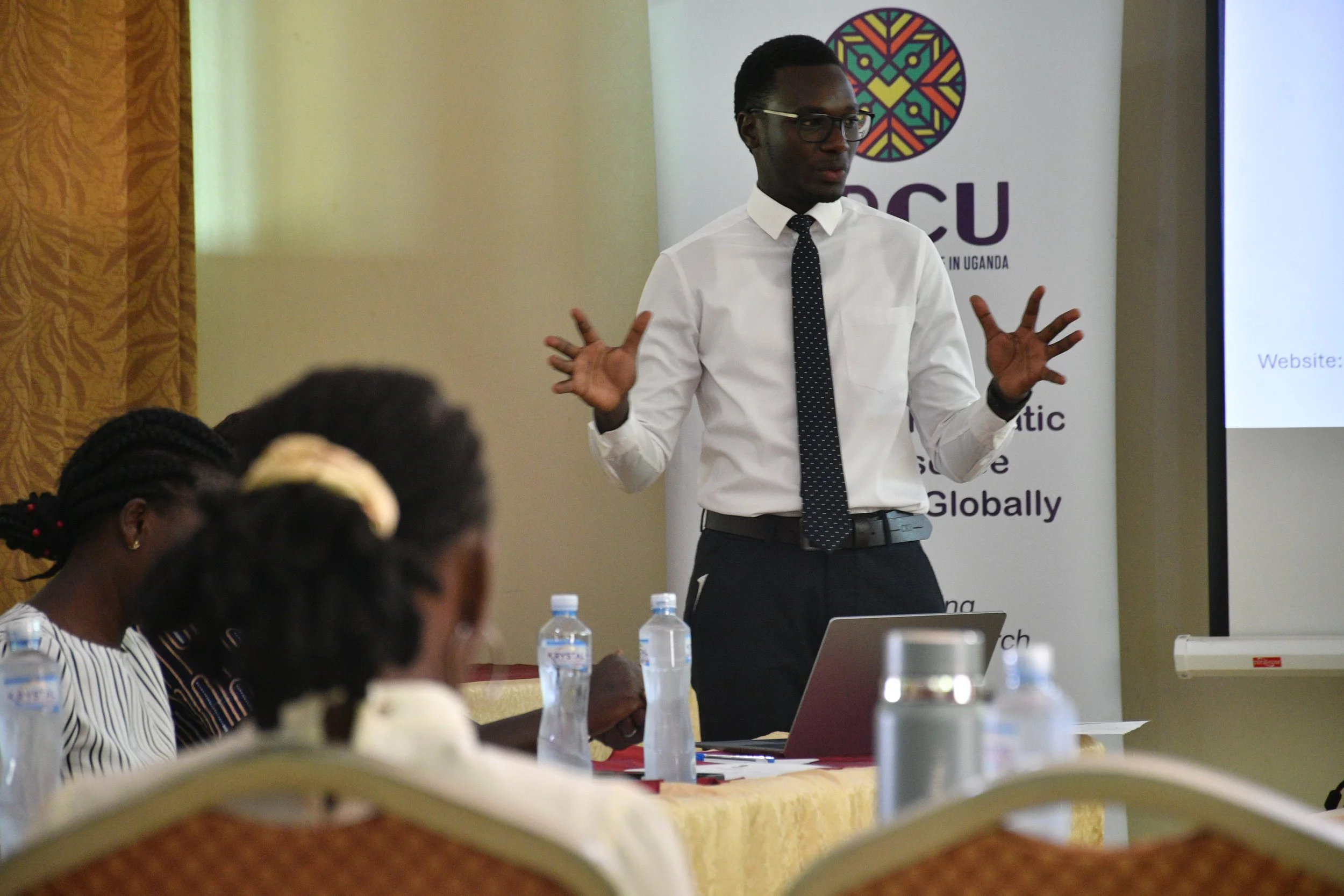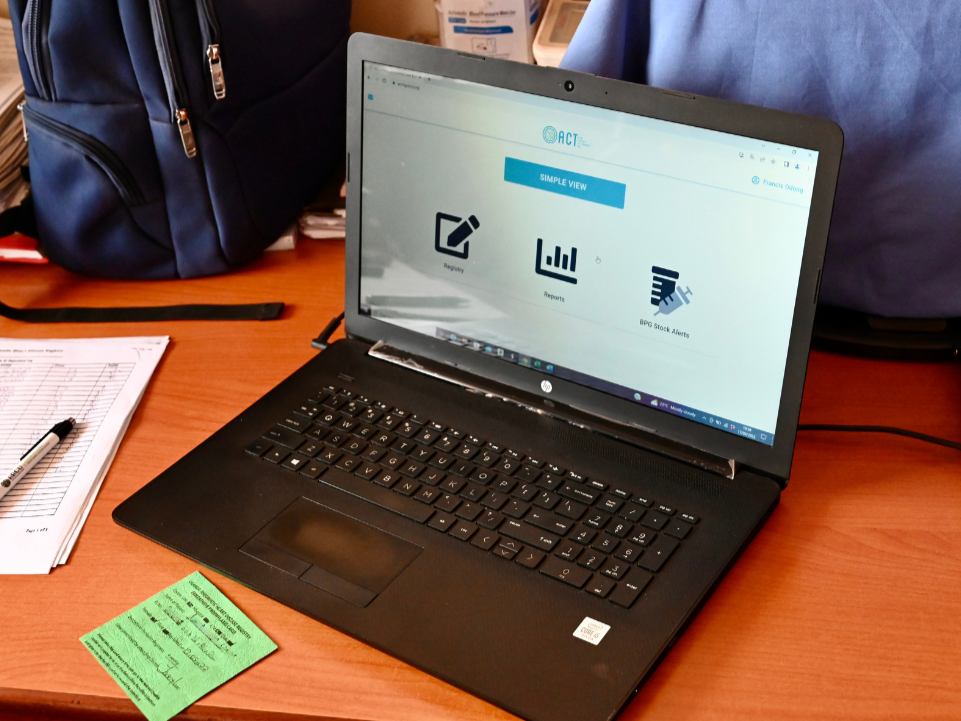Building Momentum for Better RHD Care: Highlights from the ACT Registry Workshop in Gulu District
In March 2025, the RRCU and ACT Registry team gathered representatives from all eight active RHD registry sites in Uganda for a two-day workshop in Gulu District. It was a powerful moment of reflection, connection, and recommitment to improving care for individuals living with rheumatic heart disease (RHD), as well as a reaffirmation of the team’s commitment to using the ACT Registry to drive change.
Jafes Pulle opening the ACT workshop session by presenting to the
ACT (Active Community Case Management Tool) is a dynamic mobile platform designed to overcome barriers to high-quality RHD care in low-resource settings including shortages of specialist providers, centralized services, and limited access to reliable data. The ACT Registry connects care across settings, supports providers with tools to prioritize follow-up, improves access to interventions, and provides real-time data to monitor disease burden and outcomes.
Led by Jafes Pulle from the RRCU, the workshop opened with sessions on the foundation of ACT in Uganda, the importance of registry-based care, and how the platform supports quality improvement across sites. A live demonstration refreshed participants on navigating registry tools, forms, and dashboards. This ensured everyone left with practical skills and renewed confidence.
Peer learning and collaborative problem-solving were central to the workshop. In small group discussions, participants reflected on their experiences with ACT over the past year identifying what’s working, what challenges persist, and where improvements can be made. One breakout group focused on developing targeted strategies to enhance patient follow-up and adherence, while another explored ways to improve provider communication and data quality.
“This was a wonderful meeting. To meet everyone in person and share experiences has been such an honor. It made me feel like I am part of something big and encouraged me continue working hard for our patients.” A nurse from Mbarara
ACT Platform in-use for training.
The Uganda Heart Institute closed the workshop with presentations on tertiary care, including the surgical referral process, INR monitoring, and heart failure management in the context of RHD. These sessions helped connect the dots between local care and national services, reinforcing the value of an integrated, well-coordinated health system.
Participants left feeling energized and united by a shared goal: to strengthen RHD care through local innovation and national coordination. Many described the experience as empowering, not only in deepening their understanding of RHD and the ACT platform, but also in recommitting to their roles in delivering consistent, high-quality care.
This workshop was more than a training, it was a reaffirmation of what’s possible when dedicated providers come together to solve problems, share ideas, and drive forward a collective vision. As the ACT Registry continues to grow, this momentum will support improved RHD care in Uganda and serve as a model for similar efforts globally.


